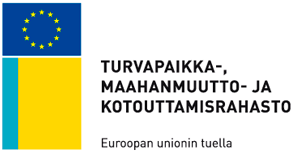The Niitty project is developing a peer-to-peer based antinatal class model for immigrant families. The project aims at facilitating the everyday life of immigrant families, strengthening their participation in social and health care services and promoting their integration. The project takes place on 1 April 2018 – 31 December 2020.
The model prepares immigrants for the childbirth, care for the baby, breastfeeding, parenthood, way of life and everyday life of families. Families’ service needs related to culture-specific sexual and reproduction health practices are considered in development. They include for example circumcision of girls and boys. The antinatal class model will be developed together with immigrants in the Tampere Region in Finland.
The antinatal class model of the project has the purpose to have third-country pregnant women with a residence permit and their families to participate in the Finnish health service system as clients. A public health nurse and peer instructor with an immigrant background hold the antinatal classes. Finnish families also participate in the groups. The antinatal classes begin during pregnancy and continue after childbirth as a peer support group for families with small children. Immigrant families gradually become integrated into other groups for families with small children organised in the area. It promotes integration of immigrant families.
The project promotes dialogue between health care staff and immigrant families. It increases families’ trust in the health service system and health care staff’s abilities in meeting multicultural families and understanding their individual service needs. In the project, immigrant families also receive peer support from Finnish families with small children.
The model will be developed in workshops with immigrants, specialists of different fields, third sector and project workers. The project will produce freely available material on the themes in different languages. It can be used in individual and group guidance and for self-study among immigrants.
A peer instructor network consisting of immigrants and Finnish families with peer instructor training will be established to disseminate the project. The peer-to-peer based antinatal class model for immigrants will be piloted in Tampere and thereafter integrated to a part of the Finnish child and family service policy.
The Niitty project is funded by the Asylum, Migration and Integration Fund and the project organisations through their self-financed shares. The project coordinator is Tampere University of Applied Sciences and the project partner is the City of Tampere.
Further information from:
Project Manager Irmeli Nieminen
irmeli.nieminen@tuni.fi
tel. +358 50 3119677


